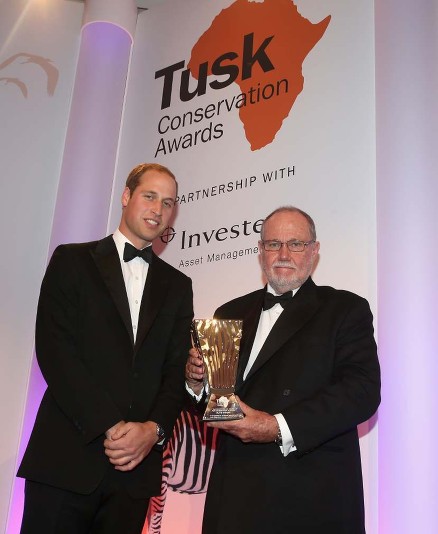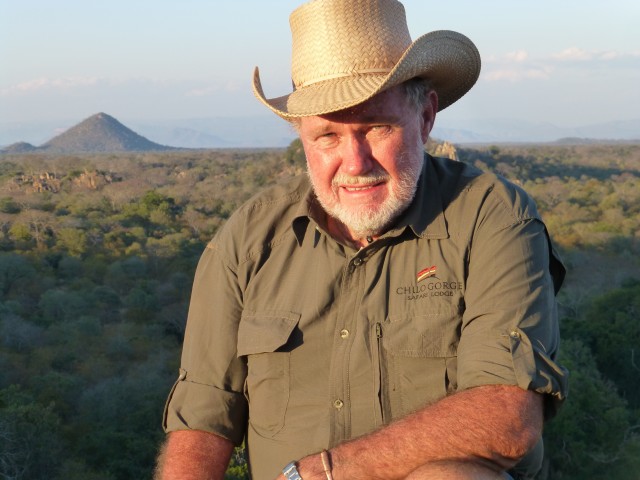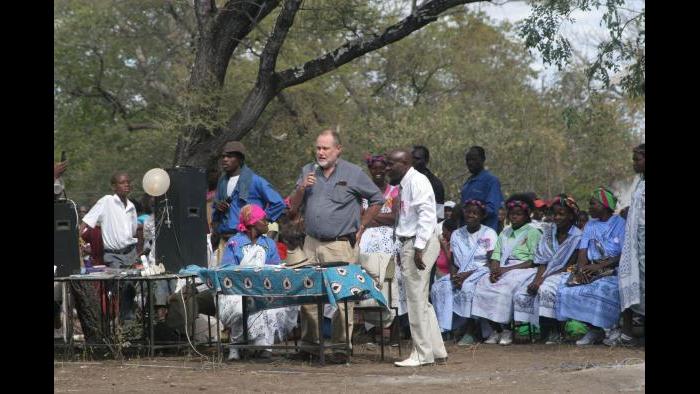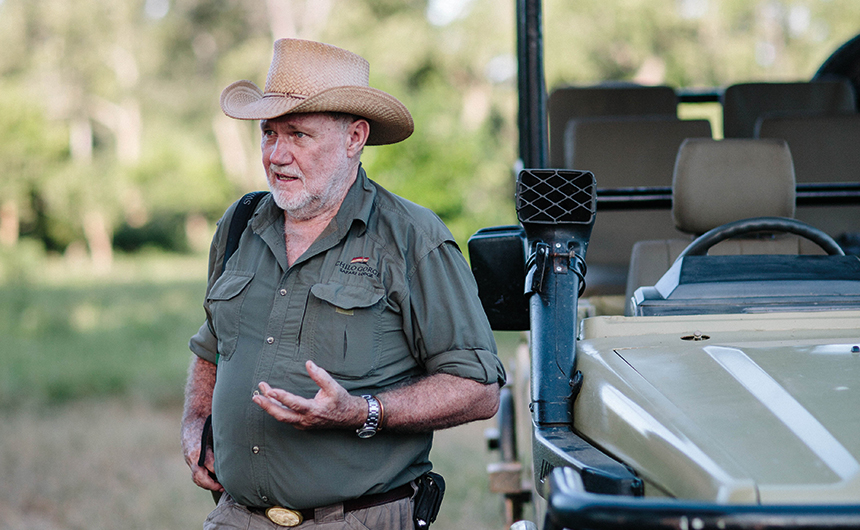Clive Stockil
A pioneer in community conservation
Clive Stockil
Clive Glenn Stockil has dedicated over 40 years to engaging with local communities in the conservation of their natural heritage. In 1992 he helped create Zimbabwe’s biggest private reserve in the Save Valley in the the south-east of the country, which is now home to one of the biggest rhino populations in Africa (starting with an initial population of 20 rhinos there are now over 140).
Later, Clive became involved in the Mahenye Community Project that had evolved out of the conflict between a local Changana community and the Gonarezhou National Park over natural resource use and competition for space. The concepts that emerged out of this conflict later became the core principals incorporated in the CAMPFIRE programme (Communal Areas Management Programme for Indigenous Resources), which in turn became the core principles behind many community conservation programs across the continent.Clive’s efforts in conservation were recently recognised when he was awarded the lifetime Prince William Award for Conservation in Africa.
My mentor, barefoot professor, was a Changana friend called Musisinyani Thomas Chauke, a true naturalist whose knowledge and passion for the wild natural world was contagious. I consider it an honor and privilege to have spent many days and nights in the bush with him, learning and understanding basic bush law. This in turn led me to pursue an interest in conservation through local cultures, recognizing that in the final analysis, success will come down to a balance between humans and wildlife. The greatest challenge will be for space. - Clive Stockil
AN INSIGHT INTO THE MAN
‘Are you proud of your achievements? How do you feel being labelled Africa’s greatest conservation pioneer?
This has been a way of life, not something to seek recognition for, any success is rewarding in its self, I guess it is human nature to be proud of achieving success in sometimes difficult circumstances. I certainly would not consider myself as Africa’s greatest conservation pioneer, there have been many who have achieved greater successes and there will be others in the future, this was an award recognising a country’s effort to deal with local challenges and this would not have been possible without the involvement and support of those I work closely with. A truly humble soul. The interviewer went on to probe more about Clive’s phenomenal life and conservation milestones: ‘How did your love of wildlife and the African bush begin? I consider it a privilege to have been born in a wild environment. My early childhood was spent close to nature and my parents were an inspiration to me, both had a keen love of the wilderness we lived in. I was fortunate to have spent the first nine years of my life with Xangaan playmates and peers, learning their language and cultures. This later became a great asset in the work I chose, that of community-based conservation. How and when did your passion for conservation begin? Where did your work start? A love for nature, and the balance of ecosystems. I soon realised that pursuance of pure conservation on a continent where there is a continuing demand for land / space would not succeed. To achieve long term and sustainable conservation, a balance was needed which recognised human needs. Both these projects are situated within fifty kilometres of where I was born. Why rhinos? Rhino are an important component of the ecosystem, due to their sudden decline in numbers in recent years, created by human greed. It became clear that we needed to establish a flag ship species in our effort to add value to the land / space needed to conserve large wilderness landscapes for the benefit of other species. What do you see in the future for the wildlife? In some of the low rainfall areas of Zimbabwe, traditional agriculture and domestic livestock production is not sustainable. The land use option considered by the Save Valley Conservancy where annual average rainfall is less the 500 mm, clearly showed that a multi-species wildlife program achieved greater ecological sustainability. This would produce a quality wildlife attraction and through tourism meet economic needs for ongoing conservation costs and contribute to community livelihoods. What has been the most challenging setback during your career? The 1992 drought, this was the worst drought recorded living memory, supplementary feeding programs had to be managed to save both human life and to keep viable populations of all the effected wildlife species.Dealing with bureaucracy at National, Provincial and district levels. Getting consensus in changing land use from commercial agriculture to wildlife / tourism. What has been your greatest success? Turning conflict to cooperation between the Mahenye community and the Gonarezhou National Park, pioneering the principals of the (CAMPFIRE) program, (Communal Areas Management Program for Indigenous Resources). Participating in the rehabilitation of 350.000 hectares of degraded land. What’s next? There is no end, therefore no next, improving on what has been started. Why do you believe community-based conservation is so important? In Africa, aesthetic values are a luxury. If we as humans are to share this space and achieve environmental and species conservation. we all have to participate in the process. Communities are part of the system, without their support conservation of natural resources will fail. The most valuable lesson we all need to take away from the interview: How can people help conservation and the fight against wildlife crime? Awareness at all levels, global level and national level. Governments need to deal with corruption and to review penalties, legislating laws that will reduce the will to poach. Give the environment a value. Tourism travellers should research and identify tourist facilities that embrace and implement sustainable conservation. Wildlife needs to meet conservation costs, communities need to perceive a value in sharing this finite space, if we are going to successfully protect these priceless wilderness areas, which are no longer just national, but are global assets.ARTICLES OF INTEREST
Conservationist Pioneer Helps Zimbabwe’s Rhinos Bounce Back by Paul Caine, September 2017
Interview with the Award-Winning Conservationist Pioneer, Clive Stockil with Jacada Travel
Clive Stockil: Gentle Giant in a Giant Park BY BRIDGET COHEN, Steppes Travel 2016
Go back to: Leaders in tourism and conservation



